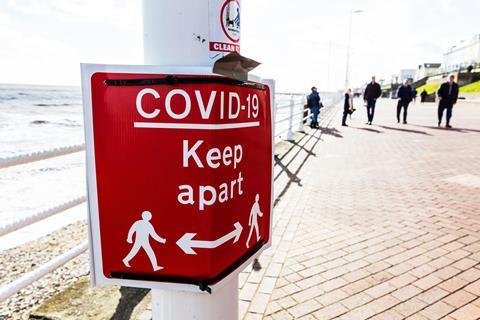A solicitor accused of improperly threatening legal proceedings during the pandemic appeared before the Solicitors Disciplinary Tribunal yesterday. Philip Julian Paul Hyland, an employment lawyer and founder of Lincolnshire firm PJH Law, is accused of using his position as a solicitor inappropriately to ‘lend his view and the view of his clients' additional credibility’, the tribunal heard.

The allegations against Hyland, admitted in 1998, centre on correspondence sent in December 2021 to a GP practice on behalf of one client and to the chair of the Medicines and Healthcare products Regulatory Agency (MHRA) on behalf of three clients. Hyland is said to have improperly threatened legal proceedings when there was no proper basis for the claims.
In correspondence to the GP practice, Hyland sought a Covid-19 exemption certificate for his client that would allow him to travel without needing to self-isolate afterwards in accordance with restrictions at the time. The Solicitors Regulation Authority argues that the client was not entitled to an exemption and merely sought to avoid restrictions.
Bejamin Tankel, for the SRA, said Hyland ‘immediately threatened a legal claim in this letter, which amounts to a preliminary letter before action’. Tankel added: ‘The correspondence as a whole is misleading. It is asserting as legal fact all of these points about undue influence on this wholly incorrect premise that Client A was being forced to take a vaccine when he was not.
‘What Mr Hyland demanded would have resulted in, if it were complied with, is Client A being able to avoid restrictions because of his contentious objection and in doing so, at least in the eyes of the public health decision-makers, he would risk spreading disease.’
Correspondence to the chair of the MHRA is alleged to have improperly threated legal proceedings over the vaccines and sought relief, including withdrawing the vaccines, suspending Covid testing and a live televised Christmas broadcast announcing the decision to do so.
Tankel said: ‘Why was it for Clients A, B or C or Mr Hyland to suggest that such vaccinations should be withdrawn from use for anyone else that wanted them? This was an attempt to change public policy or adopt a political view…rather than a recognisable legal action.’
Referring to ‘factual leaps’ in the correspondence, Tankel said: ‘The fact Mr Hyland was able to point to evidence of harm [caused by the Covid vaccines] did not mean that it was being ignored by the MHRA.’ He added: ‘The SRA invite the tribunal to draw the inference this was not a serious legal claim. The relief Mr Hyland was seeking was wholly unrealistic, it did not relate to these clients’ issue. Even if the relief did relate, it was totally disproportionate.
‘[Hyland] was really…seeking to cloak what was basically a political view in some legal terminology and the solicitors’ profession in order to lend that view, his view and the view of his clients, additional credibility which it otherwise did not warrant. That is clear from the context. It was a “small p” political campaign dressed up as a legal claim.’
Peter Fields, for Hyland, told the three-person panel there was no case to answer and Hyland’s views were ‘genuinely reasonably held’. He said Hyland had a ‘genuine belief’ after seeing evidence which showed an increase in risk of adverse effects for younger age groups being vaccinated.
‘These are disputed clearly, but there is evidence there. He did a lot of research. His background is actually in research and health and safety,’ Fields said. ‘What the SRA has not done is produce any medical evidence to show Mr Hyland was not correct.’
The hearing continues.






























